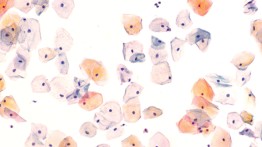COOPERMADE: ThinPrep Pap Test

The inventor Stan Lapidus EE'70, founder of the molecular diagnostics firm Exact Sciences, believes that the key to innovation is to maintain what yoga practitioners call “the beginner’s mind.” While expertise in a field is highly valuable, Lapidus believes experts can get too close to a problem and lose perspective, while the person who is not an expert often asks the better questions. “Most of my patents came during the first few hundred hours of thinking about a problem,” he says. Among those is Cologuard, a non-invasive, at-home screening test for colorectal cancer that revolutionized early detection of the disease. The product made Exact Sciences the fastest-growing company in the history of diagnostics.
In a recent talk, he reflected on breakthrough moments in his career, and the need to formulate good questions “especially when things are nuts; things aren’t working; when new technologies appear from other fields.” In other words, he’s found that the right approach to a problem comes out of pressure, failure, and a willingness to seek outside inspiration. Such was the case with yet another of his inventions, the ThinPrep Pap test. Recognizing the shortcomings of earlier versions of the exam designed in 1941 to detect cancer cells in the cervix, he set out to devise a test that could minimize misreadings. But Lapidus, who studied electrical engineering at Cooper, didn’t ask how to improve analysis of existing pap smears, but instead set out to improve the test itself. The ThinPrep removes contaminants such as mucus and blood that sometimes made earlier Pap tests difficult to interpret. As a result of Lapidus’s improvement on the technology, slides are easier to read and more cases of cervical cancer are accurately detected. The ThinPrep was the first improvement in the Pap test approved by the FDA in 50 years.





